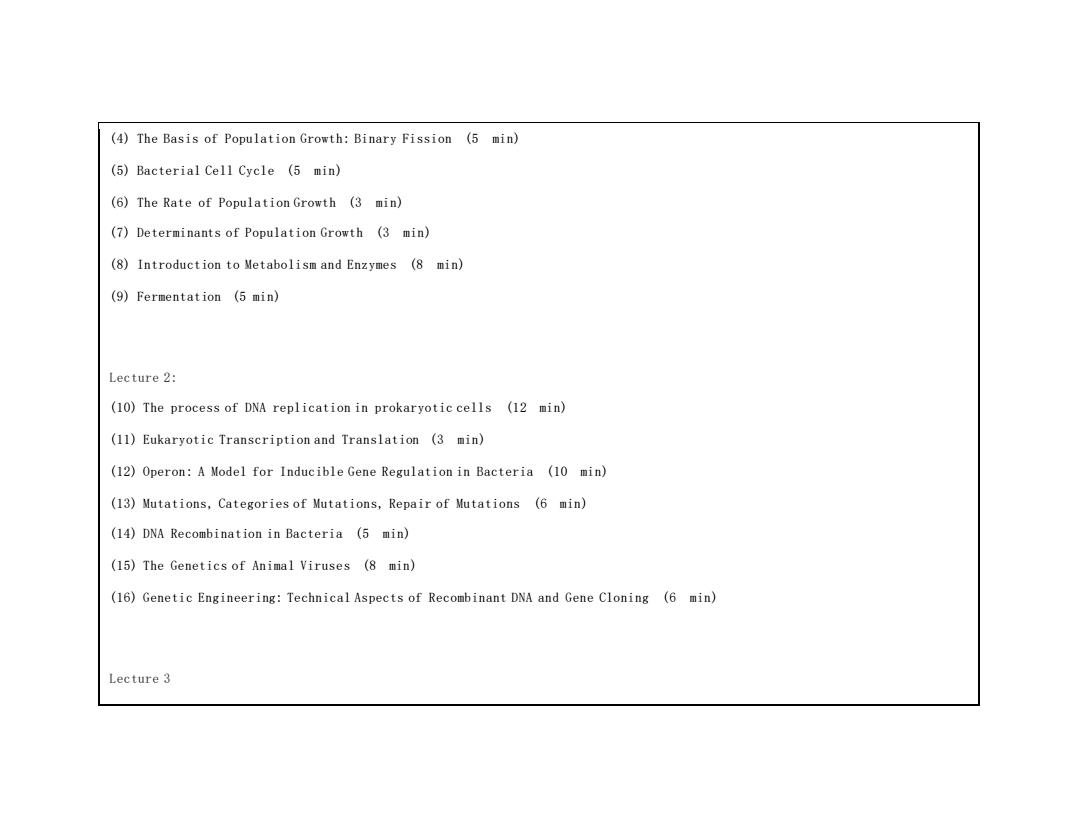
(4)The Basis of Population Growth:Binary Fission (5 min) (5)Bacterial Cell Cycle (5 min) (6)The Rate of Population Growth (3 min) (7)Determinants of Population Growth (3 min) (8)Introduction to Metabolism and Enzymes (8 min) (9)Fermentation (5 min) Lecture 2: (10)The process of DNA replication in prokaryotic cells (12 min) (11)Eukaryotic Transcription and Translation (3 min) (12)Operon:A Model for Inducible Gene Regulation in Bacteria (10 min) (13)Mutations,Categories of Mutations,Repair of Mutations (6 min) (14)DNA Recombination in Bacteria (5 min) (15)The Genetics of Animal Viruses (8 min) (16)Genetic Engineering:Technical Aspects of Recombinant DNA and Gene Cloning (6 min) Lecture 3
(4) The Basis of Population Growth: Binary Fission (5 min) (5) Bacterial Cell Cycle (5 min) (6) The Rate of Population Growth (3 min) (7) Determinants of Population Growth (3 min) (8) Introduction to Metabolism and Enzymes (8 min) (9) Fermentation (5 min) Lecture 2: (10) The process of DNA replication in prokaryotic cells (12 min) (11) Eukaryotic Transcription and Translation (3 min) (12) Operon: A Model for Inducible Gene Regulation in Bacteria (10 min) (13) Mutations, Categories of Mutations, Repair of Mutations (6 min) (14) DNA Recombination in Bacteria (5 min) (15) The Genetics of Animal Viruses (8 min) (16) Genetic Engineering: Technical Aspects of Recombinant DNA and Gene Cloning (6 min) Lecture 3
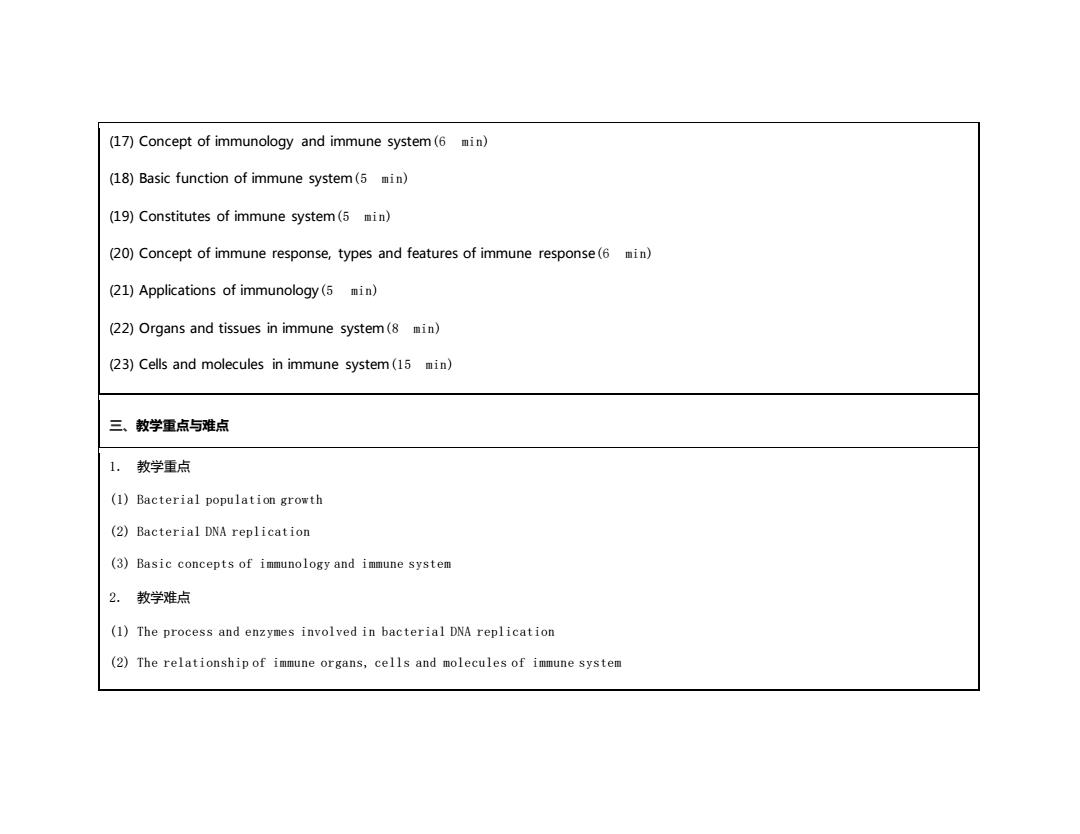
(17)Concept of immunology and immune system(6 min) (18)Basic function of immune system(5 min) (19)Constitutes of immune system(5 min) (20)Concept of immune response,types and features of immune response(6 min) (21)Applications of immunology (5 min) (22)Organs and tissues in immune system(8 min) (23)Cells and molecules in immune system(15 min) 三、教学重点与难点 1.教学重点 (1)Bacterial population growth (2)Bacterial DNA replication (3)Basic concepts of immunology and immune system 2.教学难点 (1)The process and enzymes involved in bacterial DNA replication (2)The relationship of immune organs,cells and molecules of immune system
(17) Concept of immunology and immune system(6 min) (18) Basic function of immune system(5 min) (19) Constitutes of immune system(5 min) (20) Concept of immune response, types and features of immune response(6 min) (21) Applications of immunology(5 min) (22) Organs and tissues in immune system(8 min) (23) Cells and molecules in immune system(15 min) 三、教学重点与难点 1. 教学重点 (1) Bacterial population growth (2) Bacterial DNA replication (3) Basic concepts of immunology and immune system 2. 教学难点 (1) The process and enzymes involved in bacterial DNA replication (2) The relationship of immune organs, cells and molecules of immune system
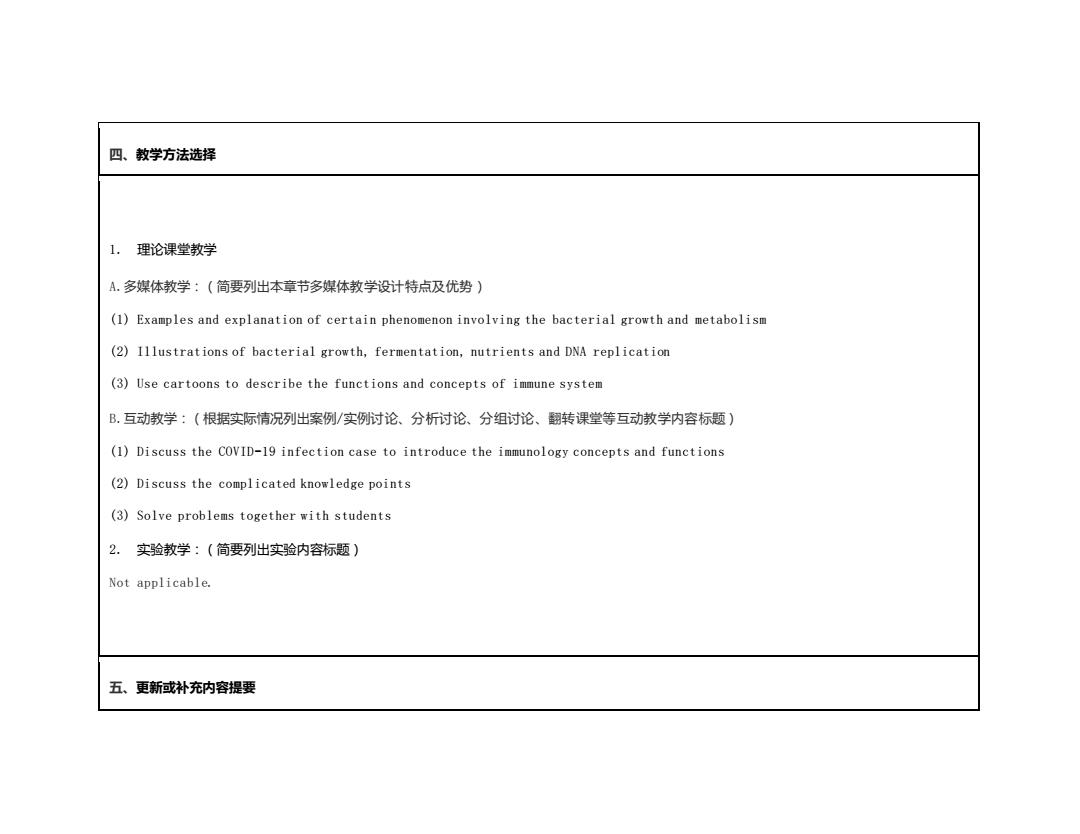
四、教学方法选择 1.理论课堂教学 A.多媒体教学:(简要列出本章节多媒体教学设计特点及优势) (1)Examples and explanation of certain phenomenon involving the bacterial growth and metabolism (2)Illustrations of bacterial growth,fermentation,nutrients and DNA replication (3)Use cartoons to describe the functions and concepts of immune system B.互动教学:(根据实际情况列出案例/实例时论、分析讨论、分组讨论、翻转课堂等互动教学内容标题) (1)Discuss the COVID-19 infection case to introduce the immunology concepts and functions (2)Discuss the complicated knowledge points (3)Solve problems together with students 2.实验教学:(简要列出实验内容标题) Not applicable. 五、更新或补充内容提要
四、教学方法选择 1. 理论课堂教学 A.多媒体教学:(简要列出本章节多媒体教学设计特点及优势) (1) Examples and explanation of certain phenomenon involving the bacterial growth and metabolism (2) Illustrations of bacterial growth, fermentation, nutrients and DNA replication (3) Use cartoons to describe the functions and concepts of immune system B.互动教学:(根据实际情况列出案例/实例讨论、分析讨论、分组讨论、翻转课堂等互动教学内容标题) (1) Discuss the COVID-19 infection case to introduce the immunology concepts and functions (2) Discuss the complicated knowledge points (3) Solve problems together with students 2. 实验教学:(简要列出实验内容标题) Not applicable. 五、更新或补充内容提要
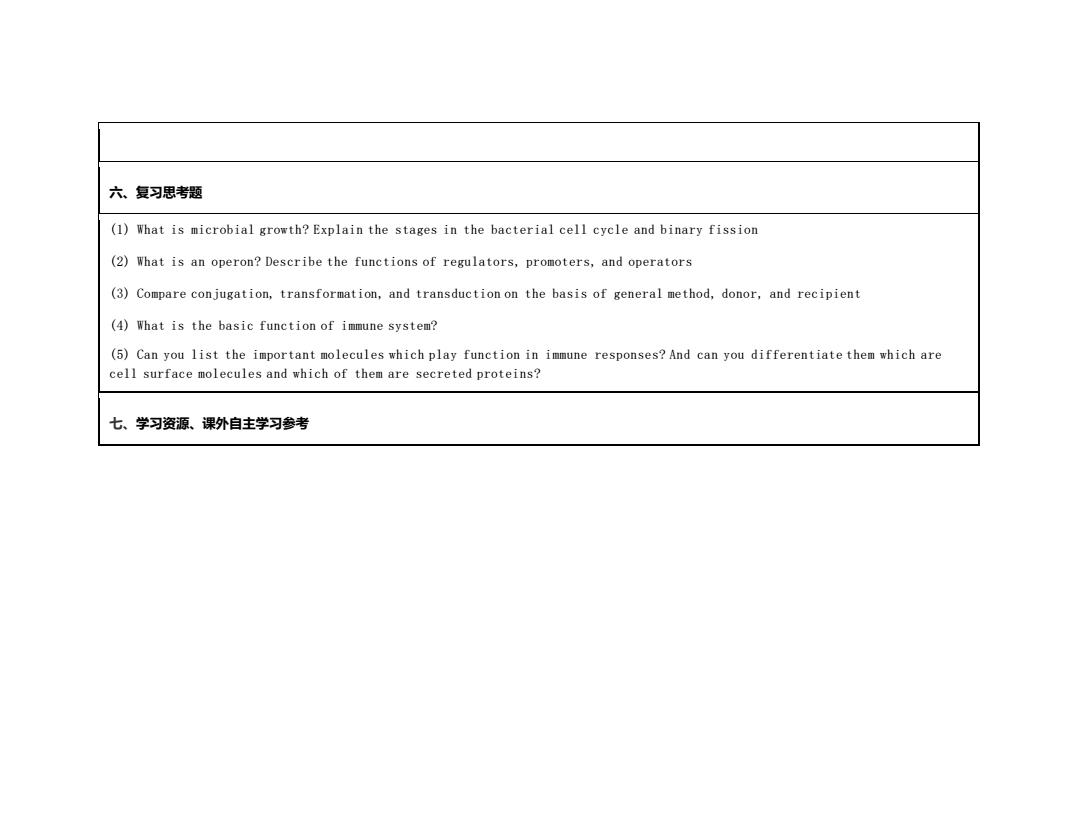
六、复习思考题 (1)What is microbial growth?Explain the stages in the bacterial cell cycle and binary fission (2)What is an operon?Describe the functions of regulators,promoters,and operators (3)Compare conjugation,transformation,and transduction on the basis of general method,donor,and recipient (4)What is the basic function of immune system? (5)Can you list the important molecules which play function in immune responses?And can you differentiate them which are cell surface molecules and which of them are secreted proteins? 七、学习资源、课外自主学习参考
六、复习思考题 (1) What is microbial growth? Explain the stages in the bacterial cell cycle and binary fission (2) What is an operon? Describe the functions of regulators, promoters, and operators (3) Compare conjugation, transformation, and transduction on the basis of general method, donor, and recipient (4) What is the basic function of immune system? (5) Can you list the important molecules which play function in immune responses? And can you differentiate them which are cell surface molecules and which of them are secreted proteins? 七、学习资源、课外自主学习参考
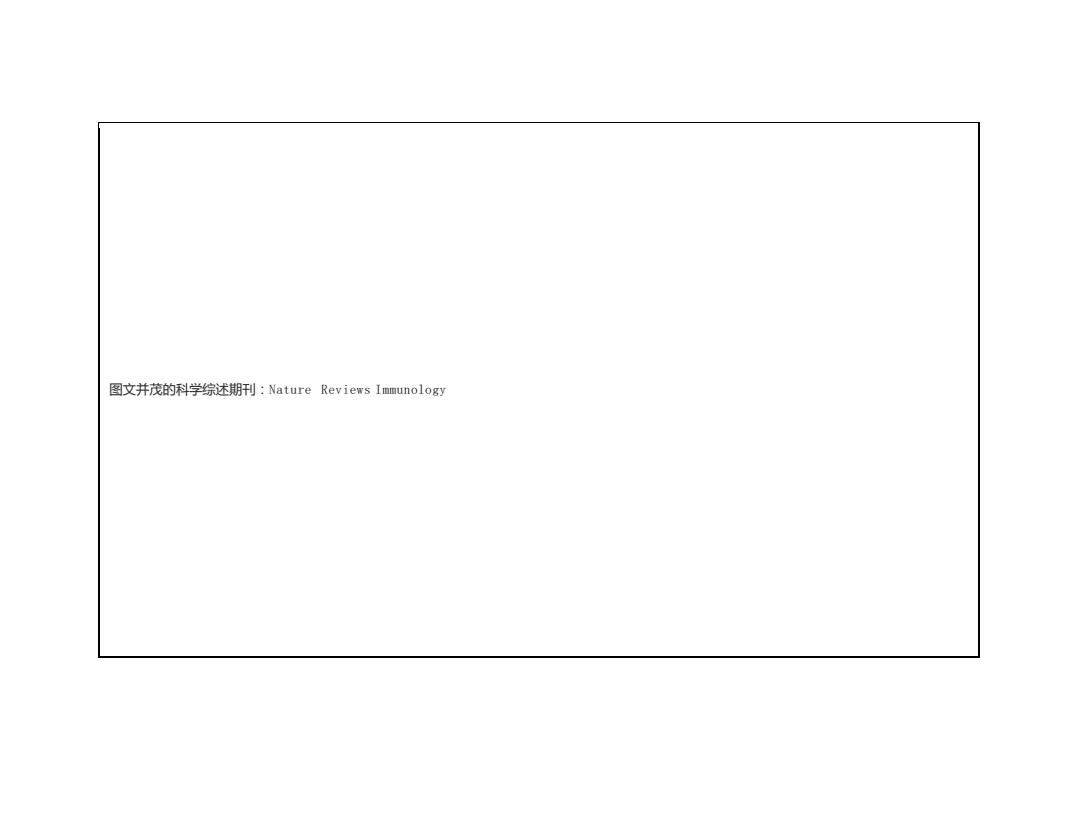
图文并茂的科学综述期F刊:Nature Reviews Immunology
图文并茂的科学综述期刊:Nature Reviews Immunology